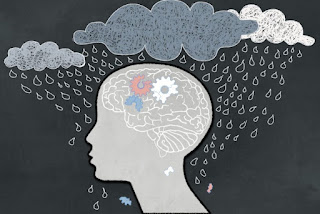The Staunch Danger that is Social Media
I can’t be the only person who sits down, looks up something simple, and winds up hunched over my desk for the next four hours. In fact, I can’t imagine I’m the minority. There’s a reason so many of us spend our precious time watching ‘top ten scariest waterslides.’ (when we were merely trying to find the nearest McDonalds) As it turns out, someone has spent the previous 10 years studying the matter. This vigilante is Tristan Harris. A former employee of Google, he says software companies compete for a precious resource: our attention. He contends that our phones are severely addictive, going as far as to call them,’a slot machine in our pockets.’ From hosting a digital detox to persuading others through multiple speeches, he has challenged the mindset of frequent screen users. Rolling Stone has dubbed him as one of the, “25 People Shaping the World.” While I often have different takes on their articles, I wholeheartedly agree with their picks on this particular occasion. Technology is purposefully addictive, and as a society, we should all attempt to limit our screen time.
 As of discovering this, I will assume both my attention span and control over personal emotions on a scale of one to ten in the course of ten minutes:
As of discovering this, I will assume both my attention span and control over personal emotions on a scale of one to ten in the course of ten minutes:I believe my attention is fairly focused. I will likely get off track and indulge in content mindlessly. However, I doubt this to be the majority of my screen time. I would assume a seven.
I am a severe optimist. To enter this mindset, one needs to practice controlling their emotions various times. Because I have, my control over how things elicit me is strong. For this, I give myself an 8.
When assigned to study my behavior on a phone, I thought my attention span would be a mostly functioning entity. As it turns out, I was incorrect. With confidence, I opened YouTube for a piano tutorial. I felt prepared to conquer a new skill. But then, a flash of color caught my eye: the shorts bar. “Just a quick peek,” I tell myself. One clip led to another, the algorithm weaving its spell. 5 minutes later, I wasn’t Bach. Instead, my precious time had been spent watching a Turkish Delight recipe I’ll never make, a video on why SpongeBob is a bad influence on children, and a glimpse into Jimmy Fallon’s personal life. Looking back, each click was a twist that led me further from my initial goal. Just as an alcoholic always wants one more drink, I was chasing after one more video. Technology’s addictive power truly surprised me.
After the vacuous time spent on this platform, I ask myself if the time on there held a value. Originally, when I was enjoying the piano tutorial: yes. Soon after, no. In fact, I believe it negatively affected my mental health. I was searching for something that would make me laugh or smile. When a dry chuckle aroused from one, I scrolled to the next.
What I consumed was insignificant to both my then present life and future life. I probably won’t remember what Jimmy Fallon eats for breakfast within a week.
What I felt after one scroll to the next was an ennui commonly referred to as depression. Indeed, depression would describe the hands that latched onto my heart throughout my time on YouTube. Though a varying spectrum, this can be where one feels nothing; he is numb. This is identical to the feeling I expressed.
While some, there is little value on the time wasted on YouTube. (or any social media platform, for that matter) If I had better discipline on focusing, this wouldn’t be the case. Though I am certainly a large part of the issue, the way YouTube is designed donates an even bigger piece. Because of its inherent addictiveness, I waste sizable amounts of my precious time absorbed in things I care nothing about.
After 20 minutes on YouTube, I drop my prestigious 7 into a humble 3. Further, my control of how my emotions are elicited falls from an 8 to a six.
I still had control over my emotions, but the fact that I was chasing after a certain one makes me question if that authority is as strong as I had once believed. In a world devoid of screens, I have much control over how my attention is perceived. In a world where screens manifest every crack and crevice, this statement’s confidence fluctuates.
Social media is a gift, it allows us to connect with friends. (or make new ones) Despite this, those who lead such sites are corrupt. Therefore, each social media platform is, like its sleazy creator, corrupt. Whether Instagram or Facebook, each has an identical goal: to steal our precious time. Our attention is like a rare resource to our screen leaders. Gold has always been considered a valuable asset. Today, however, we live in a society where our attention span weighs in a greater value. In this society, we should limit the time we spend feeding the pig that is social media. Tristan Harris, however, urges us to abandon the sites as a whole. Harris has a unique view of looking at social media, originating from something strange: the mindset of a magician. He says,”Magicians start by looking for blind spots, edges, vulnerabilities and limits of people’s perception, so they can influence what people do without them even realizing it. Once you know how to push people’s buttons, you can play them like a piano.” In an identical fashion, those who design social media think the same. Here’s the kicker: how such sites are devised aren’t the entirety of the problem, we are. Harris is aware that the average person opens their phone 150 times a day. Are we making 150 conscious decisions through this period? Surely not. Tristan Harris alludes our addictive nature to gambling. Unapologetically, he says,’When we pull our phone out of our pocket, we’re playing a slot machine to see what notifications we got.” If we actually abandoned social media, our lives may greatly benefit. Though a definite challenge, we are capable. The question is, will we accept it?
Sources:
https://www.theatlantic.com/magazine/archive/2016/11/the-binge-breaker/501122/





Comments
Post a Comment